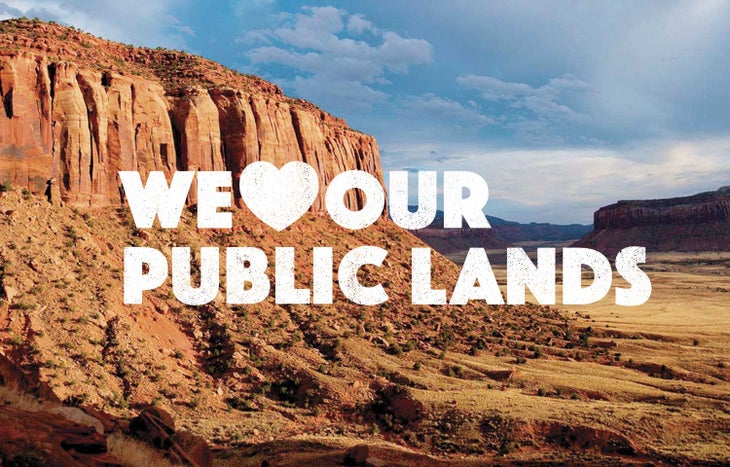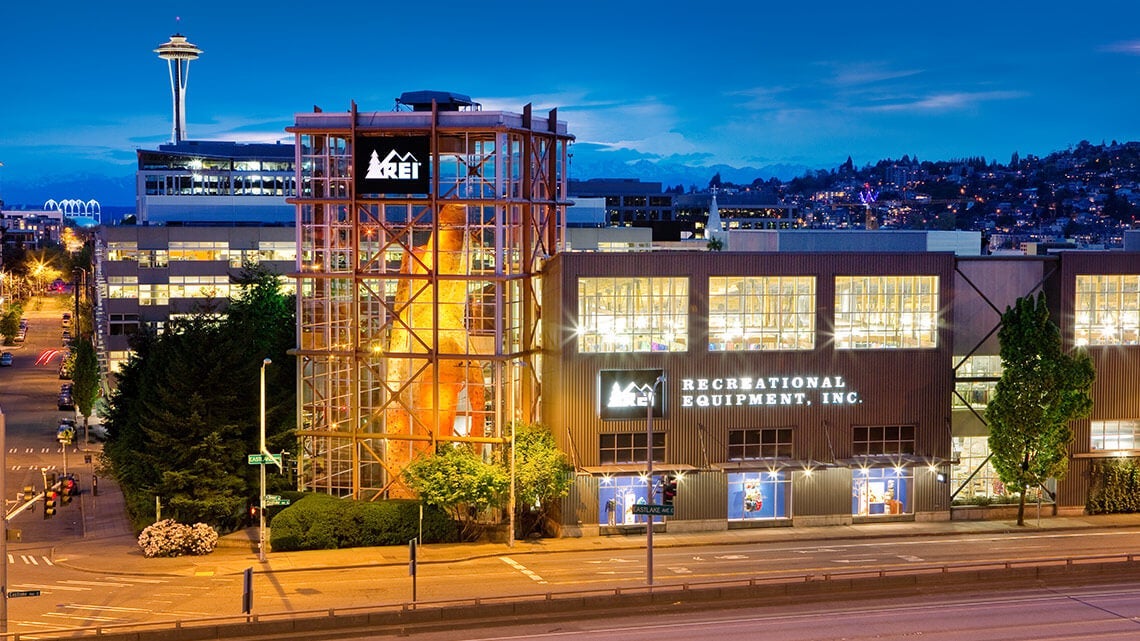“Excuse me. Can you tell me where the CamelBaks are?” I asked a hovering, green-vested employee in a big metro REI store last fall. “We don’t carry CamelBak anymore,” she said. Obviously well-versed, she continued, “Their parent company also owns a semi-automatic rifle manufacturer, and we stopped selling all their brands back in March 2018. But I can show you some other great hydration systems this way.” Of course I knew that REI didn’t carry CamelBak or any other Vista Outdoor brands, and I realized my slip up moment I said it. I broke the news in a viral story when both REI and its Canadian counterpart MEC dropped the hydration company along with Blackburn, Camp Chef, Giro, and Bell, after the school shooting in Parkland, Florida.
However, a little more than a year later, most of that has changed. Vista sold off its gun making-companies (but still owns ammo brands), so REI welcomed the outdoor brands back to its shelves with open arms. Meanwhile, MEC hasn’t changed its mind yet. And Vista—with numerous hook and bullet brands—continues to be an adamant supporter of the NRA because “it’s the crux of who we are,” CEO Chris Metz said in an interview with American Rifleman (the publication displayed a Savage banner ad at the top of its website Friday).
Business as usual? It is nowadays. The boycott and REI’s immediate reversal illustrates the pressure and responsibility businesses face to take stances on hot-button issues: Patagonia leading the fight for public lands and climate; Unilever and Dove pushing for healthy body image; Dick’s Sporting Goods stopping gun sales.
In fact, consumers are expecting it more and more.
“Years ago, you didn’t really know the company behind a brand,” said Leslie Gaines-Ross, New York-based chief reputation strategist at Weber Shandwick. She researches CEO and consumer activism. “There used to be a very strong belief that the product brand was more important than the parent brand. What we’ve seen today is that the parent brand is just as important, if not more important than the product brand.”
A Recap of the Boycott
In February 2018, Aaron Naparstek, a journalist and cycling advocate, first tweeted about Vista’s ownership of some of his favorite bike brands alongside “America’s largest manufacturer of ammunition.” His tweet came six days after 17 people were killed and 17 others were injured in a shooting at Marjory Stoneman Douglas High School. The thread garnered hundreds of likes, retweets, and responses, and it prompted some independent bike retailers to drop Vista brands. Erik Tonkin, owner of Portland, Oregon’s Sellwood Cycle Repair was one of the first.
“When I made the decision, I made a very specific public statement: I will start selling Giro when they are sold off from Vista,” he said. (Since Giro and the other brands are still owned by Vista, Tonkin is continuing to keep them out of his store.)
Mega retailers MEC and REI quickly joined the boycott, amplifying the message. REI specifically halted orders because Vista didn’t “engage in the national conversation about common-sense gun safety” and the co-op didn’t want to help them “profit directly from the sale of guns.”
In May 2018, Vista’s Metz said a transformation plan that included divesting Savage Arms and eyewear brands had been in the works long before the boycott. But it’s unclear if the move was accelerated by the Parkland shooting and the boycott, or both or neither. OBJ reached out to REI, Vista, and CamelBak multiple times over the last year to try to understand how the boycott has impacted business. Our calls were not returned and/or our questions were deflected.
This week, after the $170-million sale of Savage Arms, Vista again declined to answer OBJ’s direct questions, but did say: “We have had productive discussions with REI. Our brands offer some of the most innovative, respected and sought-after products in their respective categories, and we look forward to continuing our dialogue with REI to bring our products back to their shelves.”

Customers Vote With Dollars
In both instances—REI’s boycott and decision to bring Vista back—customers’ reactions were mixed. There were those who were offended, those who applauded the move, and those who didn’t really care. Overall, the aftermath highlighted two things: how splintered hikers and hunters can be despite their crossover and shared appreciation of the outdoors; and how much a company’s response matters.
Drew Youngedyke, who manages communications for a national conservation organization, and also hunts, fishes, bikes, runs, and kayaks, said he appreciates when companies stand up for their values—it’s not something he’s going to punish them for. He said he intentionally rewards Patagonia with his purchases for their public lands stance.
Youngedyke commented on a Facebook post: “Still buy Federal copper [a Vista-owned ammo brand] for my deer rifle, still wear a Giro for my bike commute, still shop at REI for my trail running & backpacking gear. We don’t have to be either/or as hunters & outdoor recreationists, it doesn’t have to be liberal vs conservative. Companies did what they felt was best, now they’re all back together. Why is everyone so upset with that?”
Tonkin, of Sellwood, feels he’s doing what’s best for his shop by sticking to his word and keeping Vista brands out, even though he thinks nobody would notice—and even though he loves their products. He had just ordered $20,000-worth of Vista merchandise before the boycott.
“I’m doing this because I want to spend my corporate dollars intentionally and I don’t want my dollars to go to the NRA,” Tonkin said.
Some might say the boycott didn’t really accomplish anything because Savage Arms is still out there. Tonkin has a different take.
“I think the so-called ‘accomplishment’ was getting those large outdoor industry companies to think critically—and to think out-loud, I’d say—about what they do, how they spend, and with whom they partner,” he said.
Although no one was willing to prove actual numbers to measure the impact, Gaines-Ross says research shows it does affect companies’ bottom lines and reputations. The NPD Group in 2017 reported that CamelBak was one of biggest brands in the hydration market based on dollar sales. Their most recent data from 2018 to 2019 still ranks CamelBak as one of the top five brands. At REI, the hole left by CamelBak and the others was naturally filled by competitors. Around that time, Osprey was relaunching in the hydration category (consisting of lumbar packs and mountain biking packs) and currently holds 39 percent of the market share in hydration, said marketing director Vince Mazzuca.
But, he said, the timing was a coincidence.”We’re not one to capitalize on somebody’s issues like that. We believe that any sort of momentum shift had more to do with the investments we were making and how aggressively we were going after that channel already.”
Regardless, consumers will intentionally stop and start buying based on disagreeing or agreeing with a company. A study by Weber Shandwick found that 83 percent of consumer activists support companies that “do the right thing” by buying from them.
Because of that, companies are trying to balance their values and financial performance, making sure they get it right. It’s tricky and there’s no safe middle ground for companies today. But one thing is for sure.
“Remaining silent can sometimes be the more dangerous spot,” Gaines-Ross said.


